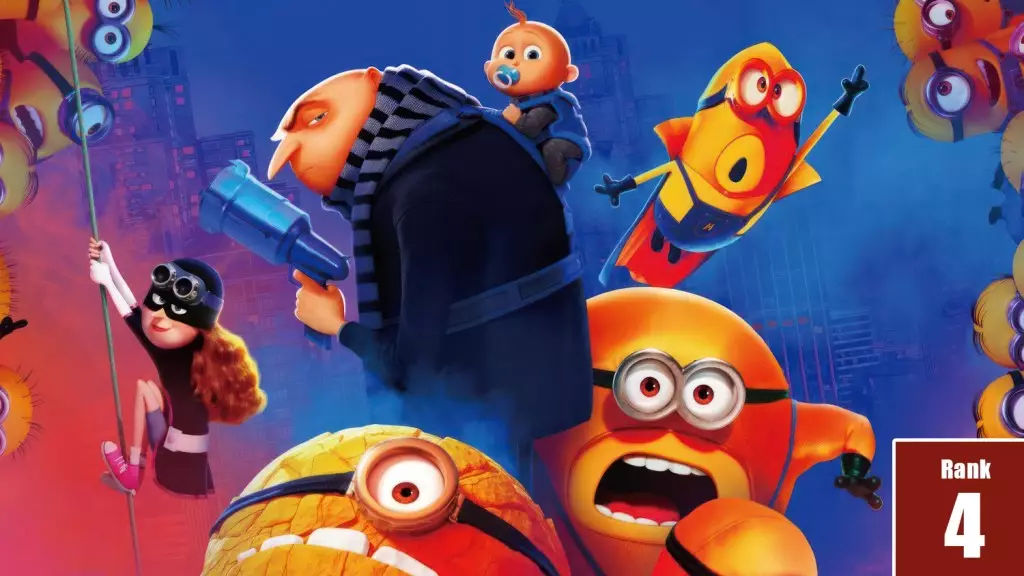In the world of cinema, the box office isn’t the complete story. As the 2024 blockbuster landscape emerges, it’s clear that traditional financial metrics may not fully encompass a film’s success. In a continuously shifting industry, where streaming services are becoming increasingly significant players, the quest for profitability has evolved. While well-known studios like Disney, Warner Bros, and Paramount maintain the conventional pay-two and pay-three release strategies, newer entities like Amazon and Apple are quietly rethinking how they measure post-release success. Their unconventional methodologies could classify some ostensibly successful films as flops by traditional standards. The focus on downstream revenues and innovative measurement tactics demonstrates the complexity of today’s cinematic economy.
Despicable Me 4: A Case Study in Blockbuster Success
One standout film in this new paradigm is “Despicable Me 4,” a title that not only marks a continuation of a beloved franchise but also heralds a groundbreaking moment in animated cinema. With the franchise now surpassing a colossal $5 billion in global earnings, this latest installment showcases the economic potency of consistency and nostalgia in filmmaking. The introduction of new characters like baby Gru and a female lead, Valentina, adds a fresh twist while maintaining familiarity—elements that resonate deeply with audiences.
The strategy behind “Despicable Me 4” highlights Universal and Illumination’s brilliance—they meticulously crafted a marketing campaign that spanned major sporting and cultural events, investing a staggering $170 million. This multifaceted approach harnessed the power of viral trends, celebrity endorsements, and cultural parodies. For instance, the viral moment of basketball star Nikola Jokić impersonating Gru reflects how cultural integration strengthens a film’s appeal, extending its presence well beyond the cinema. Moreover, partnerships like Funko and BTS pop-up stores in major cities underscore how cross-promotional tactics can elevate a film’s visibility and relationship with its audience.
Defining Metrics for Success in Film
What constitutes success in film is evolving, as demonstrated by the interconnected nature of productions and their financial health. Traditional profit-and-loss analyses often overlook vital subsequent revenues from streaming services and merchandising. In the case of “Despicable Me 4,” the film not only grossed $775 million globally but managed to generate a remarkable net profit of $370 million after accounting for a production budget of just $100 million. This underscores the notion that investing wisely in production while launching a compelling marketing strategy can yield exceptional returns.
Importantly, this film adds to the conversation on profitability in the film industry by emphasizing how well-executed campaigns and character development can work harmoniously to generate an engaged audience. The savvy reframing of character portrayals unearths new layers of consumer interest, thereby attracting both new fans and franchise loyalists.
The Role of Innovation in Film Marketing
Innovation in film promotion is critical for staying relevant in today’s market. The blend of influencer and viral culture with traditional advertising approaches, as seen with “Despicable Me 4,” exemplifies how studios are reshaping audience engagement. The strategic deployment of character-driven narratives, whether through social media dance challenges or celebrity portraits, has created an organic buzz that feels authentic and relatable.
The introduction of fun, interactive content—like the Minions’ Instagram filters or memes—allows audiences to immerse themselves within a film’s universe even before they step into the theater. This aligns perfectly with the needs of a modern viewer who craves participatory elements in their entertainment experiences. By creating a film that isn’t just a cinematic standalone but a cultural phenomenon, Universal positions “Despicable Me 4” as a case study for future animated projects.
“Despicable Me 4” exemplifies the complex interplay of traditional box office metrics, innovative marketing, and modern viewing habits. Its success reveals that films today must adapt to changing environments and consumer expectations, making it imperative for studios to be agile and adaptive rather than anchored in outdated ideas of what constitutes success in the industry.
